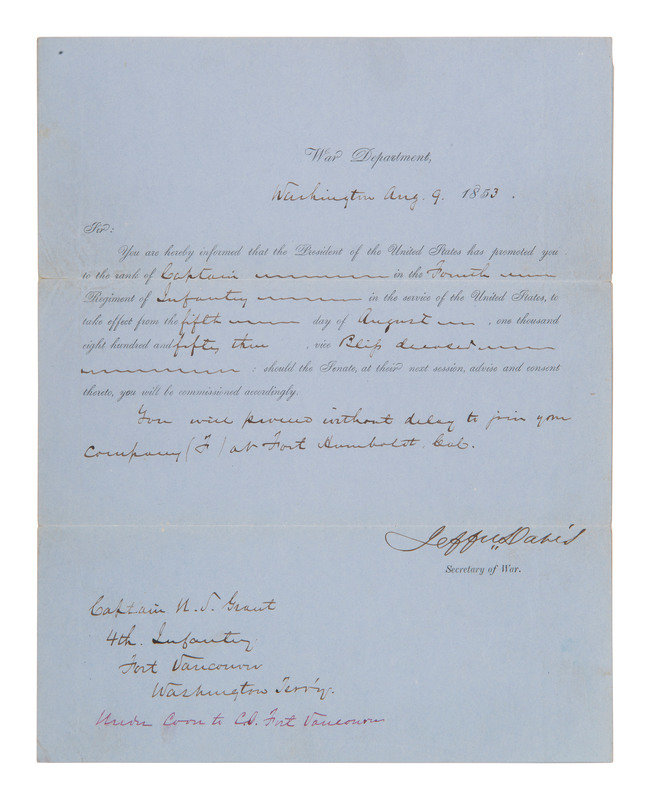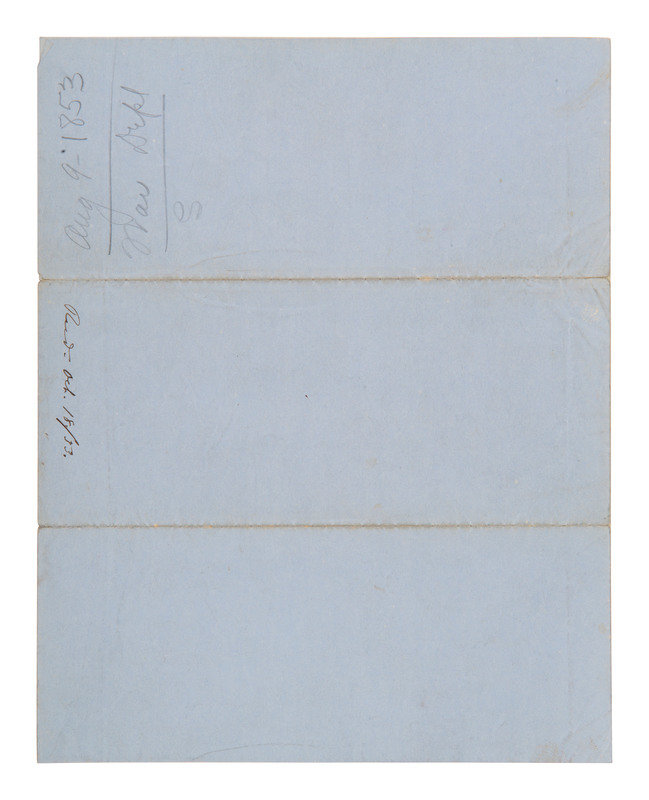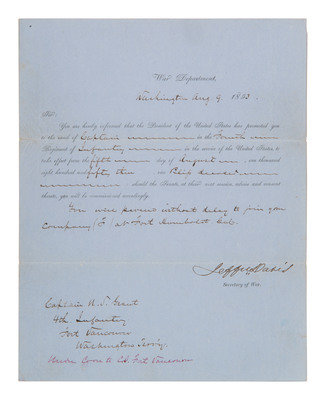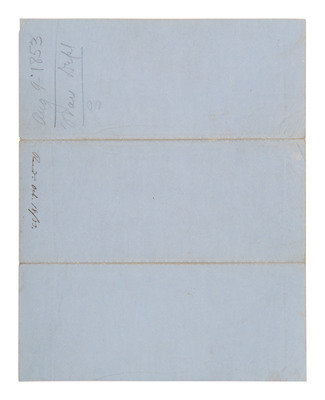DAVIS, Jefferson (1808-1889). Partly printed document accomplished in manuscript signed ("Jeffer Davis"), as US Secretary of War. Washington, DC, 9 August 1853. SECRETARY OF WAR JEFFERSON DAVIS PROMOTES ULYSSES S. GRANT TO RANK OF CAPTAIN.
Sale 1192 - American Historical Ephemera & Photography
Lots 1-294
Jun 15, 2023
10:00AM ET
Lots 295-567
Jun 16, 2023
10:00AM ET
Live / Cincinnati
Own a similar item?
Estimate
$10,000 -
15,000
Lot Description
DAVIS, Jefferson (1808-1889). Partly printed document accomplished in manuscript signed ("Jeffer Davis"), as US Secretary of War. Washington, DC, 9 August 1853. SECRETARY OF WAR JEFFERSON DAVIS PROMOTES ULYSSES S. GRANT TO RANK OF CAPTAIN.
1 page, 4to, printed on blue War Department stationery, bifolium, docketed verso, a few separations to folds with repairs verso.
Four years after the end of the U.S.-Mexican War, Ulysses S. Grant found himself on the West Coast at the Columbia Barracks in the Oregon Territory, renamed Fort Vancouver in 1853 after the territory was split to create the Washington Territory. Grant, aged 30, and in a remote military post thousands of miles from his family, kept in good spirits maintaining supplies at the fort. He frequently interacted with the local Chinook and Klickitats people, witnessing their mistreatment first-hand.
On his promotion to Captain, Grant was ordered to the even more remote Fort Humboldt. The order, signed by Davis, appearing as a post-script on this appointment: "You will proceed without delay to join your company (F) at Fort Humboldt, Cal." Desperate to see his family, newly-appointed Captain Grant made his way to Fort Humboldt in Northern California. The barracks were under the command of strict disciplinarian Lieutenant Colonel Robert C. Buchanan, who Grant had crossed paths with at Jefferson Barracks. Lonely and bored, and separated from his wife and family, Grant began to drink. Following a drunken episode, Colonel Buchanan instructed Grant to "resign or reform," but Grant continued to drink, and resigned effective 31 July 1854. Grant did not face court-martial, and the War Department determined: "Nothing stands against his good name."
Grant would later request to be recommissioned after the outset of the Civil War, and after his reinstatement, would ultimately be promoted to Lieutenant General responsible for the command of all Union Armies.
Jefferson Davis, the Secretary of War who would accept Grant's resignation from the United States Army in 1854 would, of course, become the president of the Confederate States of America. Grant's campaigns at Petersburg and Appomattox would lead to the surrender of the Confederate Army and the end of the American Civil War. A SUPERB ASSOCIATION.
Property from the James Milgram, M.D., Collection of Broadsides, Ephemeral Americana, and Historical Documents
Condition Report
Auction Specialist



